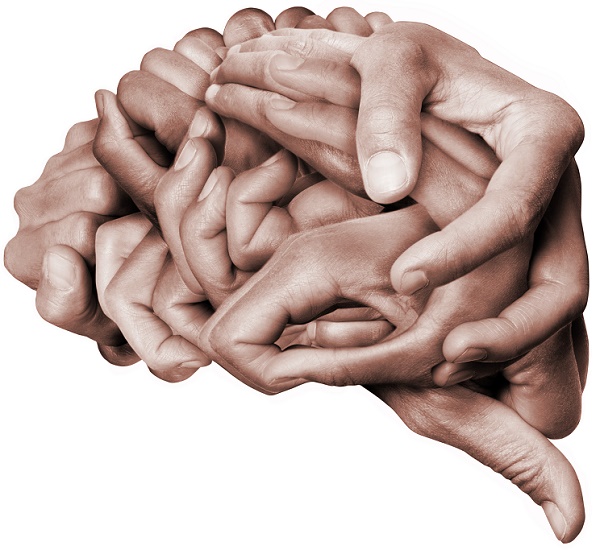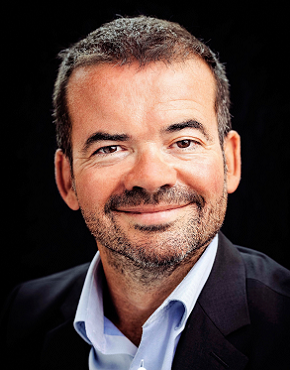Erwan Devèze, writer, speaker and founder of Neuroperformance Consulting was the guest speaker at our Learning Days events from September 10 to 17, 2019. Erwan took time out from his work as a trainer and coach in the fields of neuro-management, strategy and communications to reveal the secrets of the amazing power of our brains.

This conference provided insight into our brains and how they work, how we can learn new skills effectively, and how we can develop a constant and determined growth mindset in today’s world. Our brains have a fundamental need to learn, but not just any old how. Neuroscience provides us with unprecedented understanding of the amazing power of our brains.
A complex world for our brains to deal with
Change is everywhere in our society, but it affects and even changes our brains, and today’s instantaneous and hyperpersonalized client experience affects our brain circuits and our neural networks. Transformation in the way we work and in our businesses themselves are set alongside an increasing need for independence from staff, who are looking for both enjoyment and meaning, with an increasing sense of loyalty to themselves rather than to the company.
“Today’s world of work is becoming increasingly complex, so we need to develop a new way of leading and managing. Purely cognitive intelligence is not enough anymore – let’s not forget we are first and foremost emotional beings and that is our primary influence” Erwan Devèze told a captivated audience. Emotional, situational and relationship intelligence are now much more important than in the past, which is a very positive development.
Time to take a proactive approach and take back control of our brains
According to Erwan Devèze, each individual needs to use key neuroscience findings to enhance our skills and performances, both individually and as a group. This means understanding, training and using our brains wisely, and taking back control rather than constantly reacting to events whether consciously or in particular unconsciously.
Amazing as it may seem, 90% of our brain activity is unconscious and only 10% is conscious. “It is absolutely vital that we take time to understand our brains and the way they work to make positive progress, but we’ve never had lessons on this at school or at work! We all harbor amazing growth potential, but we need to remember that our brains are like marathon runners not sprinters, we need to train them daily, patiently and simply. If we are to take back control, we need both enjoyment and a caring approach. A CARING APPROACH is like the key in the ignition to help us get started, and ENJOYMENT is the fuel that will drive us forward.“
Insight
|
Know thyself
The conference was also an excellent opportunity for the audience to find out about the brain’s threat response system. Our brains are primed to detect danger at all times, regardless of whether it is real or just perceived, explained Erwan Devèze: “the perception of a threat activates the reptilian, primal and emotional areas of our brains and triggers negative emotions followed by a range of behavior that can include inhibition, flight, disengagement, anxiety, aggressiveness and even fight. When our brain is under immediate stress, our limbic system that processes negative emotion shuts down the part of our brain we use for reasoned thought – the neocortex – for a short time, but this part of our brain is vital in managing our attitude and behavior. A good example of this is when we instantaneously reply to an email that has made us angry. We may not realize it at the time, but we fall prey to our automatic reactions in this kind of scenario, and this is not necessarily a good thing. By reacting to a situation rather than being in control of it, we may pay the price later“. So a piece of advice: when you are in a stressful situation, hold off for a moment to let your prefrontal cortex take its rightful place in analyzing the situation. If you take a bit more time, you will actually save a lot time ultimately as you will avoid setting off the whole chain reaction that came from your initial inappropriate response.
We love learningOur speaker found our baseline for the Natixis Learning Days very interesting, as it perfectly sums up the way we relate to our brains:
|
What about the relationship between brain and learning?
The brain loves the easy way out and would rather use its existing knowledge, even though it thrives on change and all things new. And that is one of the great paradoxes! “Combining various ways of learning – both cerebral and manual – is a real investment in the future. This will help our brains be more flexible and strong, and help safeguard against neurodegenerative diseases. Learning is vital for the brain, but this means you will need to tackle several obstacles” notes Erwan Devèze, for example:
- Infobesity: “The brain cannot constantly process a high volume of information, otherwise its mental load will be too high and it will not work correctly“.
- Multi-tasking: “We cannot use two neural circuits at the same time from a cognitive perspective, otherwise we tire the brain and make it inefficient“.
- Anxiety: “Operating in an anxious context reduces our attention and our ability to remember“.
However, action is a real ally for our brains. “Our brains primarily learn by action“, hence the importance of active learning where we learn by doing, not just in theory.
Similarly, repetition and self-testing are vital factors in consolidating our memories of what we have learnt.
Erwan Devèze ended the conference with an inspiring quote to support us in our transformation: ”Be the change you want to see in the world“, Mahatma Gandhi
Some tips to look after your brain
|







 “We can develop new neurons and build new neural pathways at any age. Our brains obviously become less flexible with age, but we can use our lifestyle to fight this natural ageing process by learning every day and making sure we sleep enough, eat well, take exercise, get outside into nature, manage our stress, etc. You just need to look at 90-year old actors still treading the boards to realize the amazing power of our brains!“
“We can develop new neurons and build new neural pathways at any age. Our brains obviously become less flexible with age, but we can use our lifestyle to fight this natural ageing process by learning every day and making sure we sleep enough, eat well, take exercise, get outside into nature, manage our stress, etc. You just need to look at 90-year old actors still treading the boards to realize the amazing power of our brains!“